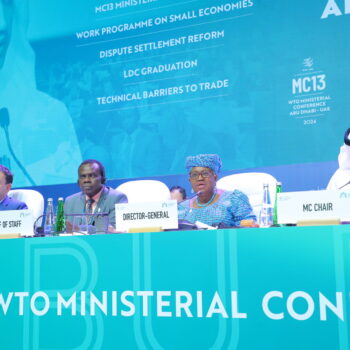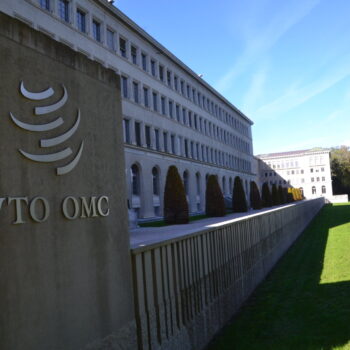To achieve a successful outcome in Copenhagen there is an urgent need for negotiators to focus on cooperative action around innovation and technology to prevent dangerous climate change.
Limiting global CO2 emissions to levels consistent with 2oC rise in temperature will take both agreement to a new commitment period and a step change in global innovation and diffusion. Limiting emissions requires Annex-I countries to agree to reductions of 25-40% by 2020 relative to 1990 baselines, and to support significant enhanced actions by developing countries. At the same time technology cooperation and diffusion must be increased to help meet these targets and make a zero-carbon energy economy feasible before 2050.
Underlying the emission reduction trajectories produced by the UNFCCC and IEA are aggressive assumptions on the early commercialisation of key technologies such as carbon capture and storage, new biofuels, high penetration renewables, electric vehicles and low carbon cement and steel production. If some major emission reduction policies fail, or markedly underperform, then more low carbon technology options will be needed earlier than predicted to keep on track.
Similarly if climate science continues to worsen, suggesting impacts are occurring faster than we previously thought, we will have to deliver new innovations sooner than is currently anticipated, including those relevant for adaptation.
This innovation is not yet happening. The EU is calling for a quadrupling of global R&D spending, but money alone is not enough. Currently, innovation spending in all countries is driven by support for national champions and competitiveness. Collaboration has been reserved for basic science and far from commercial projects such as nuclear fusion.
What needs to be done
Action is therefore required to create markets for innovation and diffusion that work in a globalised world. Markets are tools for delivering outcomes; but as the recent financial crisis has shown, without the right system of regulation and incentives a major misallocation of resources can occur. This is especially relevant for climate and adaptation innovations where we need to meet climate, energy security and economic growth objectives simultaneously. Without national and multilateral action private companies will not make the necessary investments to meet these goals.
The agreement at Copenhagen should therefore contain a science based Technology Development Objective, which sets an overall goal for increased climate and adaptation innovation. This Objective should be delivered through a series of Technology Action Programmes for strategically important technologies, with an emphasis on those with a key role in developing country markets, and new multilateral and bilateral funding to build developing countries’ own capacity to innovate. This would provide strategic coordination to balance risk and opportunity and leverage private sector activity.
We would envisage that 15-20 Technology Action Programmes should be created. The Action Programmes would be a way to scale-up and structure global technology cooperation into manageable pieces and select tools that are appropriate for the various technologies.
Such a system would help to fully capture the global public good aspects of climate and adaptation technologies, foster trust and provide opportunities for all parties to benefit from an increased global market for climate innovations.
Editor’s Notes:
- E3G is an independent, non-profit European organisation operating in the public interest to accelerate the global transition to sustainable development. E3G builds cross-sectoral coalitions to achieve carefully defined outcomes, chosen for their capacity to leverage change. E3G works closely with like-minded partners in government, politics, business, civil society, science, the media, public interest foundations and elsewhere. More information is available at http://www.e3g.org
- Innovation and Technology Transfer is a new report from E3G, in conjunction with Chatham House, as part of their programme of work on Climate Change and Energy. The Executive Summary and full report can be downloaded as a pdf from the E3G website:http://www.e3g.org


